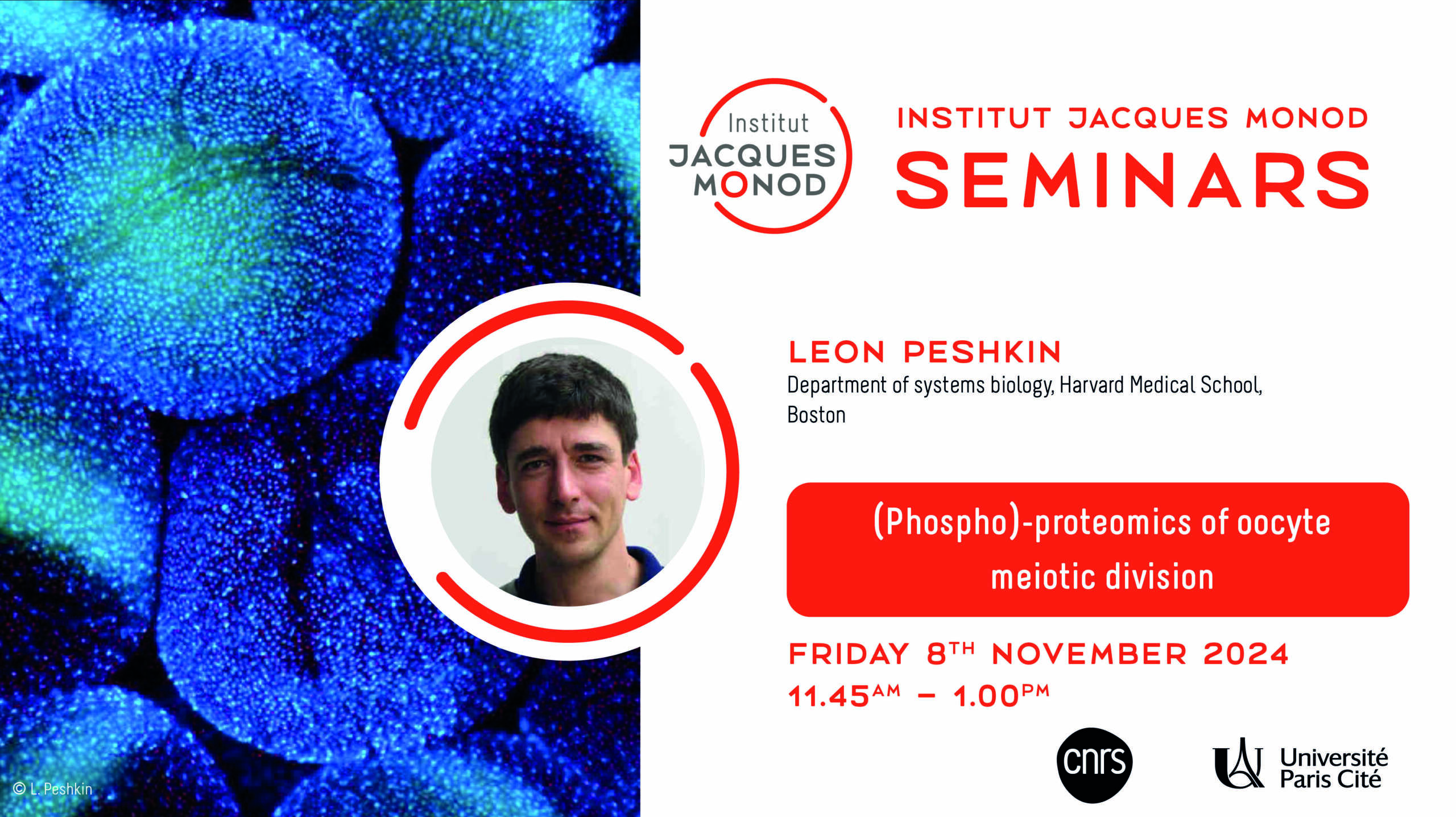
- This event has passed.
Séminaire de l’Institut Jacques Monod – Leon Peshkin
8 novembre 2024 - 11 h 45 min - 13 h 00 min

Invité par l’équipe Doye, Leon Peshkin (Mayor-Rotschild visiting professor at the Institut Curie and Principal Research Faculty at the Department of systems biology, Harvard Medical School) présentera un séminaire de l’Institut Jacques Monod sur le thème :
(Phospho)-proteomics of oocyte meiotic division
Résumé :
Oocyte meiotic divisions represent a critical process in sexual reproduction, as diploid non-dividing oocyte transforms into a haploid fertilizable egg, preparing embryonic divisions and differentiation. Although cell differentiation and proliferation are governed by transcription, oocyte maturation and early embryonic divisions depend entirely on changes in protein abundance and post-translational modifications. Here, we analyze the abundance and phosphorylation of proteins during Xenopus oocyte meiotic maturation. We reveal significant shifts in protein stability, related to spindle assembly, DNA replication and RNA-binding. Our analysis pinpoints broad changes in phosphorylation correlating with key cytological meiotic milestones, noteworthy changes in membrane trafficking, nuclear envelope disassembly and modifications in microtubule dynamics. Additionally, specific phosphorylation events target regulators of protein translation, Cdk1 and the Mos/MAPK pathway, providing insights into the dynamics of Cdk1 activity related to the meiotic cell cycle. This study sheds light on the orchestration of protein dynamics and phosphorylation events during oocyte meiotic divisions, providing a rich resource for understanding the molecular pathways orchestrating meiotic progression in the frog, and most likely applicable to other vertebrate species.
Biographie
Leon Peshkin is a Mayor-Rotschild visiting professor at the Inst Curie and Principal Research Faculty at the Department of systems biology, Harvard Medical School. His PhD was done in the field of Machine Learning and AI. His eclectic interests range from pharmaco-biology to evo-devo, to embryology, to Machine Learning applications in Systems Biology, but all he does has connection to biology of aging.

